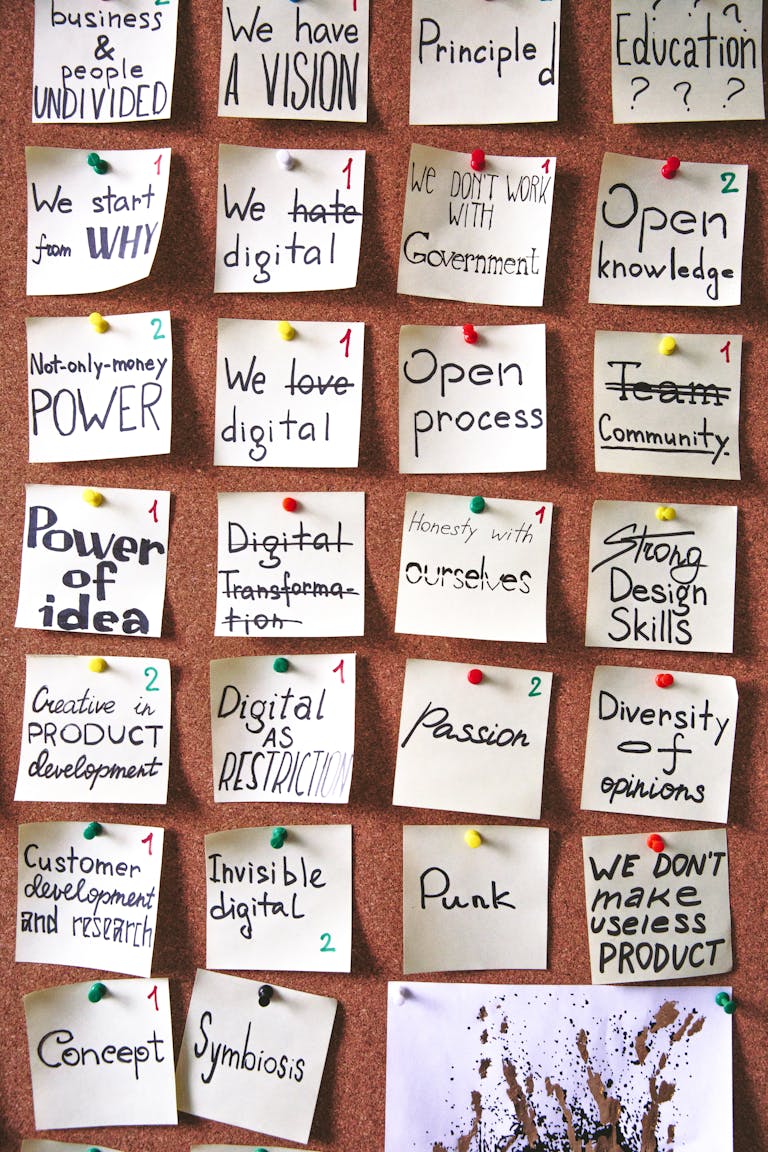Self-discipline is the ability to control your impulses, emotions, and behaviors to achieve your long-term goals. It’s a key trait of successful people and can be developed with practice and determination. Whether you want to improve your productivity, maintain a healthy lifestyle, or reach personal milestones, self-discipline is essential. In this article, we’ll explore strategies to help you strengthen your self-discipline and stay on track toward your goals.

1. Understand the Importance of Self-Discipline
Self-discipline is often the difference between success and failure. Without it, it’s easy to fall into the trap of procrastination, distractions, and inconsistent behavior. By developing self-discipline, you create the foundation for long-term achievement. It helps you stay focused, make better decisions, and resist the temptations that lead to poor choices.
While natural talent and intelligence are important, self-discipline is what enables you to consistently take action and push through challenges.
2. Set Clear and Achievable Goals
One of the first steps in developing self-discipline is setting clear and achievable goals. Without a clear target, it’s difficult to stay focused or motivated. Start by defining what you want to achieve and break it down into smaller, manageable tasks.
2.1 Use SMART Goals
A helpful tool for setting goals is the SMART framework. SMART goals are:
- Specific: Clearly define what you want to achieve.
- Measurable: Identify how you’ll measure progress.
- Achievable: Ensure the goal is realistic and attainable.
- Relevant: Make sure the goal aligns with your larger objectives.
- Time-bound: Set a deadline for achieving the goal.
Using the SMART method gives you a clear roadmap to follow, helping you stay disciplined and focused.
3. Build Positive Habits
Strong self-discipline is rooted in consistent, positive habits. By forming productive habits, you can make the process of staying disciplined easier. These habits act as the building blocks that keep you on track even when motivation wanes.
3.1 Start Small
When developing new habits, start small to ensure success. If you’re trying to wake up earlier, begin by setting your alarm just 15 minutes earlier each day until you reach your goal. Gradual changes are easier to maintain and less overwhelming.
3.2 Make Habits Consistent
The key to building discipline through habits is consistency. Once a new habit is ingrained into your routine, it becomes automatic. For example, if you decide to exercise every morning, make it a non-negotiable part of your day. The more you practice a habit, the less effort it requires.
4. Practice Self-Control
Self-discipline requires self-control. It’s important to practice resisting temptations and distractions that may take you off course. Building self-control is about learning to delay gratification and make choices that align with your goals.
4.1 Avoid Temptations
One of the easiest ways to strengthen self-discipline is to remove or avoid distractions. If you find it hard to focus while working from home, create a designated workspace free from distractions like your phone, TV, or other entertainment.
4.2 Use the “10-Minute Rule”
When you’re tempted to procrastinate, use the “10-minute rule.” Commit to working on a task for just 10 minutes. Often, once you start, you’ll find that you can keep going, and the task won’t feel as overwhelming. This simple technique helps you push through resistance and build momentum.
5. Create a Productive Environment
Your environment plays a crucial role in your ability to stay disciplined. Surrounding yourself with the right people, tools, and conditions can make it easier to stay focused on your goals.
5.1 Declutter Your Space
A cluttered environment can lead to distractions and stress. Keep your workspace clean and organized to promote focus and productivity. Make sure you have everything you need within reach to avoid unnecessary interruptions.
5.2 Surround Yourself with Like-minded People
The people you interact with can influence your discipline. Surround yourself with people who encourage you to stay on track and share your values. Positive, goal-oriented individuals will help you stay motivated and disciplined.
6. Develop Mental Toughness
Mental toughness is the ability to stay focused, calm, and determined in the face of challenges. It’s a critical component of self-discipline because it enables you to push through difficult times and stay on course.
6.1 Visualize Your Success
Visualization is a powerful tool for building mental toughness. Take a few minutes each day to visualize yourself achieving your goals. Imagine the feelings of pride and accomplishment you’ll experience once you’ve succeeded. This mental exercise can help reinforce your commitment and drive.
6.2 Practice Self-Compassion
Self-discipline doesn’t mean being hard on yourself all the time. It’s important to practice self-compassion and forgive yourself when you slip up. Everyone makes mistakes, and the key is to learn from them and keep moving forward rather than dwelling on failure.
7. Track Your Progress
Tracking your progress helps you stay accountable and motivated. Whether you use a journal, app, or spreadsheet, documenting your achievements allows you to see how far you’ve come.
7.1 Celebrate Small Wins
Celebrate your successes, no matter how small. When you complete a task or reach a milestone, take a moment to acknowledge your accomplishment. Positive reinforcement helps build motivation and strengthens your self-discipline over time.
7.2 Adjust Your Goals if Necessary
As you track your progress, you may find that some goals need to be adjusted. Don’t be afraid to re-evaluate your goals and make necessary changes to stay on track. Flexibility is an important aspect of maintaining discipline and achieving long-term success.
Q: How can I stay disciplined when I’m feeling unmotivated?
A: When motivation is low, try using techniques like the “10-minute rule” or focusing on the small wins. Consistency, even in small actions, will help build momentum and reinforce your self-discipline.
Q: How long does it take to build self-discipline?
A: Building self-discipline is a gradual process. It varies from person to person, but it typically takes 21-66 days to establish a new habit. Be patient with yourself and stay consistent.
Q: How can I avoid distractions while working on my goals?
A: Set up a distraction-free environment, use productivity tools, and set clear boundaries with your time. Regular breaks and a focused routine can also help you stay on track.
Start Building Your Self-Discipline Today!
Self-discipline is the key to achieving your personal and professional goals. Start small, stay consistent, and track your progress. With time and determination, you can develop the self-discipline needed to reach new heights. Begin today and see the positive changes in your life.

I’m EKBAL HOSSAIN MONDAL, the creator of SmartSolveTips.com — a blog dedicated to helping people improve productivity, avoid digital burnout, and live better online. With years of hands-on experience in self-development and digital wellness, I write practical tips and tools to help you stay focused and thrive in a fast-paced digital world.






